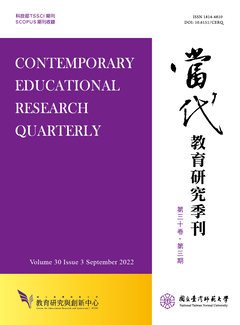

研究目的
在多元複雜、瞬息萬變的當代科技生活,我們須建立道德原則與共識,據以明辨是非善惡,並理性地思考、言說及行動,促進社會共好共榮。本研究乃基於文化價值傳統,呈顯儒家的理智精神,探究荀子「辨說」概念內涵及對現今教育啟示。
研究設計/方法/取徑
本研究採概念分析及詮釋學方法,以《荀子》為主要文獻,探究「辨說」的意涵與要件,及其教育蘊義。
研究發現或結論
荀子於戰國亂世提出「辨說」辯護「禮義」價值,據以明辨是非善惡,說服他人以達致道德共識。他要求辨說者依規則正確地使用語言,同時秉持仁愛、包容、公正、尊重及道德勇氣等品德,並依不同處境闡明「禮義」適切合宜的意涵,以如實準確地掌握事物事理,且使論說令人信服。
為合理且有效地「辨說」,荀子提出創制與使用名辭語彙的原則及言說謬誤,並指出導正認知的方法,要求人們注意遵循。他亦強調在論辯時,人們應批判地與整全地思考,及提出充足的理由,且所用語言須合於意義一致、不相矛盾且符事實經驗等邏輯或理性的法則。此外,培養品德及良好態度,對成功的「辨說」亦不可或缺。
藉由提出合理而成功「辨說」的要素,荀子指出應培養與發展的能力及品德,包括理性、整全且適當的思考、言說或行動,可供當代教育參考,以因應現今複雜多元、變遷快速的社會,同時有助人們形成合理而有價值的道德共識。
研究原創性/價值
荀子所提「辨說」強調言說的邏輯性與理性,根據「禮義」明辨是非、駁斥邪說謬論,且說服眾人凝聚道德共識。其不僅具明確原則及方法,更表現儒家批判精神且能維護社會和諧。「辨說」的內涵展現言說的品德與智慧,凸顯儒家思想的合理性及言說的功用,對當代教育實有重要意義。
教育政策建議或實務意涵
本研究主張荀子「辨說」實具理性思考、論說、行動及品德,並能建立合理的價值共識。其對當代教育的啟示有:
一、植基傳統文化價值,彰顯儒家思想的當代意義,尤其對言說的看法。
二、呈現荀子思想的不同面向,探究其合理性言說的內涵與要素,包括必備能力及品德,做為教育的指南。
三、提出理性思考與論辯的策略,有助因應複雜多變的生活。
Purpose
In complicated and rapidly-changing modern technological life, it is necessary to come to a moral consensus. Such a consensus can enable us distinguish right from wrong and to think, speak, or act reasonably to build a harmonious and prosperous society. This study aims to contribute to modern education by discussing the spirit of rationality of Confucianism and the key factors of the Chinese philosopher Xunzi’s method of “argumentation” for debate or dialectics.
Design/methodology/approach
This study applies a conceptual analysis and hermeneutic approach to the collected writings of Xunzi, The Xunzi, to explore the meaning, necessary conditions, and significance for education of Xunzi’s concept of “argumentation.”
Findings/results
In the tumultuous Warring States Period, Xunzi proposed “argumentation” to argue for the value of “propriety;” that is, to distinguish right and wrong and to convince people to reach a moral consensus. He stipulated several rules on the correct use of language and encouraged speakers to follow these rules to more precisely and truthfully understand ideas and principles as well as to make their arguments more persuasive. Moreover, these rules encouraged virtues such as benevolence, tolerance, fairness, respect, and moral courage. He also noted that speakers must judge what the appropriate meaning of “propriety” is in a given situation.
For rational and effective “argumentation,” Xunzi proposed principles for creating and using terms as well as fallacies in the use of language. He also described several methods of cognitive correction and emphasized that, when debating or arguing about values, people should be capable of thinking critically and holistically, offer sufficient reasons, and use language that conforms to the rules of logic or reason. These rules include consistency in meaning, an absence of contradictions, and congruity with factual experience. Furthermore, the cultivation of several virtues is also indispensable for successful “argumentation.”
By presenting these essential requirements of rational and successful “argumentation,” Xunzi clearly identified the capabilities and virtues that speakers should cultivate, including reasonable, comprehensive, and appropriate thinking, discourse, or action. These capabilities and virtues could be used as a reference in modern education to meet the demands of today’s complex and rapidly changing society while also helping communities form a moral consensus that is rational and useful for their context.
Originality/value
Xunzi’s concept of “argumentation” emphasizes logic and reason in discourse, distinguishes between right and wrong, and focuses on persuading others to accept moral values by considering the concept of “propriety”. It includes explicit principles and methods but is also emblematic of the critical spirit of Confucianism and its goal of maintaining a harmonious society. By manifesting virtues and wisdom in discourse, “argumentation” highlights the characteristics and function of discourse in Confucian philosophy. This is useful for present-day education.
Implications for policy/practice
This study argues that Xunzi’s concept of “argumentation” includes the notions of reasonable thinking, discourse, action and virtues that support the development of a rational value consensus. This study’s contributions to education as follows:
1. Based on a consideration of traditional cultural values, this study reveals the contemporary significance of Confucianism, especially for discourse.
2. This study discusses a different aspect of Xunzi’s philosophy, exploring its meanings and the essential capabilities and virtues of rational discourse, as a guide for education.
3. This study identifies strategies for rational thinking and discussion that can help us respond to rapid changes in our increasingly complex world.

This work is licensed under a Creative Commons Attribution-NonCommercial 3.0 Taiwan License.
Center for Educational Research and Innovation, National Tawain Normal University
162, Ho-Ping East Rd, Sec. 1, Taipei, Taiwan | Tel:+886-2-7749-3670 | E-mail: cerecerq@gmail.com
CERI | NTNU | E-mail Alerts | Open Journal System
© 2014 CERI-NTNU
